The Trial (1962) is a dream-logic black comedy drama film directed by Orson Welles, who also wrote the screenplay based on the novel of the same name by Franz Kafka. Filmed in Europe, Welles stated immediately after completing the film: "The Trial is the best film I have ever made". The film begins with Welles narrating Kafka's parable "Before the Law" to pinscreen scenes created by the artist Alexandre Alexeieff. Anthony Perkins stars as Josef K., a bureaucrat who is accused of a never-specified crime, and Jeanne Moreau, Romy Schneider, and Elsa Martinelli play women who become involved in various ways in Josef's trial and life. Welles plays the Advocate, Josef's lawyer and the film's principal antagonist.
| The Trial | |
|---|---|
French theatrical release poster (1962) | |
| Directed by | Orson Welles |
| Produced by | Alexander Salkind |
| Screenplay by | Orson Welles |
| Based on | The Trial by Franz Kafka |
| Starring | Anthony Perkins Orson Welles Jeanne Moreau Romy Schneider Akim Tamiroff Elsa Martinelli |
| Music by | Jean Ledrut |
| Cinematography | Edmond Richard |
| Distributed by | Astor Pictures Corporation |
Release date | 21 December 1962 |
Running time | 118 minutes |
| Country | France Italy Germany |
| Language | English |
| Budget | US$1.3 Million |
| Box office | 998,779 admissions (France) |
The Trial has grown in reputation over the years, and some critics, including Roger Ebert, have called it a masterpiece. It is often praised for its scenic design and cinematography, the latter of which includes disorienting camera angles and unconventional use of focus.
Screenplay
Josef K. (Anthony Perkins) is sleeping in his bedroom, in an apartment he shares with other lodgers. He is awakened when a man in a suit opens his bedroom door. Josef assumes the glib man is a policeman, but the intruder does not identify himself and ignores Josef's demand to produce police ID. Several detectives enter and tell Josef he is under open arrest. In another room Josef K. sees three co-workers from his place of employment; they are there to provide evidence regarding some unstated crime. The police refuse to inform Josef K. of his misdeeds, or if he is even being charged with a crime, and they do not take him into custody.
After the detectives leave, Josef converses with his landlady, Mrs. Grubach (Madeleine Robinson), and neighbor, Miss Burstner (Jeanne Moreau), about the strange visit. Later he goes to his office, where his supervisor thinks he has been having improper relations with his teenaged female cousin. That evening, Josef attends the opera, but is abducted from the theater by a police inspector (Arnoldo Foà) and brought to a courtroom, where he attempts in vain to confront the still-unstated case against him.
Josef returns to his office and discovers the two police officers who first visited him being whipped in a small room. Josef’s uncle Max suggests that Josef consult with Hastler (Orson Welles), a law advocate. After brief encounters with the wife of a courtroom guard (Elsa Martinelli) and a roomful of condemned men awaiting trial, Josef is granted an interview with Hastler, which proves unsatisfactory.
Hastler’s mistress (Romy Schneider) suggests that Josef seek the advice of the artist Titorelli (William Chappell), but this also proves unhelpful. Seeking refuge in a cathedral, Josef learns from a priest (Michael Lonsdale) that he has been condemned to death. Hastler abruptly appears at the cathedral to confirm the priest’s assertion.
On the evening before his thirty-first birthday, Josef is apprehended by two executioners and brought to a quarry pit, where he is forced to remove some of his clothing. The executioners pass a knife back and forth, apparently deliberating on who will do the deed, before handing the knife to the condemned man, who refuses to commit suicide. The executioners leave Josef in the quarry and toss dynamite in the pit. Josef laughs at his executioners and picks up the dynamite. From a distance there is an explosion and smoke billows into the air.
- Anthony Perkins - Josef K.
- Jeanne Moreau - Marika Burstner
- Romy Schneider - Leni
- Elsa Martinelli - Hilda
- Suzanne Flon - Miss Pittl
- Orson Welles - Albert Hastler, The Advocate
- Akim Tamiroff - Bloch
- Madeleine Robinson - Mrs. Grubach
- Paola Mori - Court archivist
- Arnoldo Foà - Inspector A
- Fernand Ledoux - Chief Clerk of the Law Court
- Michael Lonsdale - Priest
- Max Buchsbaum - Examining Magistrate
- Max Haufler - Uncle Max
- Maurice Teynac - Deputy Manager
- Wolfgang Reichmann - Courtroom Guard
- Thomas Holtzmann - Bert the law student
- Billy Kearns - First Assistant Inspector
- Jess Hahn - Second Assistant Inspector
- Naydra Shore- Irmie, Joseph K.'s cousin
- Carl Studer - Man in Leather
- Jean-Claude Rémoleux - Policeman #1
- Raoul Delfosse - Policeman #2
- William Chappell - Titorelli
In 1960, Welles was approached by producer Alexander Salkind to make a film from a public domain literary work. Salkind had originally wanted Welles to make Taras Bulba. When Salkind found out that producer Harold Hecht was already making Taras Bulba with Yul Brynner in the lead, he offered Welles a list of 82 other film titles to choose from. From that selection, Welles decided The Trial would be the most feasible film to make. Salkind promised that Welles would have total artistic freedom and he would not interfere with Welles’ creation. Welles and Salkind agreed to create a film based on the Franz Kafka novel The Trial, only to discover later the text was not in the public domain and that they needed to obtain the rights to the property. Earlier that year, Michael Lindsay-Hogg (rumoured to be Welles's son), had casually mentioned an idea to Welles about adapting The Trial as a stage play, prompting Welles to state that The Trial was an important book and that he should re-read it.
Salkind committed 650 million French francs (U.S.$1.3 million in 1962 currency) to the budget for The Trial and secured backing from German, French and Italian investors.
Welles took six months to write the screenplay. In adapting the work, he rearranged the order of Kafka’s chapters. In this version, the chapter line-up read 1, 4, 2, 5, 6, 3, 8, 7, 9, 10. However, the order of Kafka's chapters was arranged by his literary executor, Max Brod, after the writer's death, and this order is not definitive. Welles also modernized several aspects of the story, introducing computer technology and changing Miss Burstner’s profession from a typist to a cabaret performer. Welles also opened the film with a fable from the book about a man who is permanently detained from seeking access to the Law by a guard. To illustrate this allegory, he used the pin screen animation of Alexandre Alexeieff, who created animated prints using thousands of pins.
Welles also changed the manner of Josef K.'s death. Kafka originally had the executioners pass the knife over the head of Josef K., thus giving him the opportunity to take the weapon and kill himself, in a more dignified manner - Josef K. does not, instead he is fatally stabbed by his executioners in the heart, and as he dies Josef K. says "like a dog." In the film, whilst the executioners still offer him the knife, Josef K. refuses to take it, and goads the executioners by yelling "You'll have to do it!" The film ends with the smoke of the fatal dynamite blast forming a mushroom cloud in the air while Welles reads the closing credits on the soundtrack.
Welles initially hoped to cast U.S. comic actor Jackie Gleason as Hastler, but he took the role himself when Gleason rejected the part. Welles also dubbed the dialogue for 11 actors in The Trial. Welles reportedly dubbed a few lines of Anthony Perkins’ dialogue and challenged Perkins to identify the dubbing. Perkins was unable to locate the lines where Welles dubbed his voice.
In actor Peter Sallis's 2006 autobiography, Fading Into the Limelight, Sallis details how he starred with Orson Welles in Welles' stage play, Moby Dick—Rehearsed and tells of a later meeting with him where he received a mysterious telephone call summoning him to the deserted and spooky Gare d'Orsay in Paris, where Welles announced he wanted him to dub all the Hungarian bit-players in The Trial. Sallis pronounces the episode to be "Kafka-esque, to coin a phrase", but never does reveal if he actually did go through with the dubbing.
Welles began the production in Yugoslavia. To create Josef K.’s workplace, he created a set in an exposition hall just outside Zagreb, where 850 secretaries banged typewriters at 850 office desks. Other sequences were later shot in Dubrovnik, Rome, Milan and Paris. Welles was not able to film The Trial in Kafka’s home city of Prague, as his work was banned by the communist government in Czechoslovakia.
In Paris, Welles had planned to shoot the interiors of his film at the Bois de Boulogne studios, but Salkind had difficulties collecting promised capital to finance the film. Instead, he used the Gare d'Orsay, an abandoned Parisian railway station. Welles rearranged his set design to accommodate this new setting, and he later defended his decision to film at Gare d'Orsay in an interview with Cahiers du cinéma, where he stated: "Everything was improvised at the last moment, because the whole physical concept of my film was quite different. It was based on the absence of sets. And the gigantic nature of the sets, which people have objected to, is partly due to the fact that the only setting I had was that old abandoned station."
Welles edited The Trial in Paris while technically on vacation; he commuted in on weekends from Málaga, Spain, where he was taking time to film sequences (reported as being "the prologue and epilogue") for his self-financed film adaptation of Don Quixote, to oversee the post-production work.
In a later interview with Peter Bogdanovich, Anthony Perkins stated that Welles gave him the direction that The Trial was meant to be seen as a black comedy. Perkins would also state his greatest professional pride came in being the star of a Welles-directed feature.
While filming in Zagreb, Welles met 21-year-old Croatian actress Olga Palinkaš. He renamed her Oja Kodar and she became Welles' companion and occasional artistic collaborator during the latter years of his career.
Welles initially planned to premiere The Trial at the Venice Film Festival in September 1962, but the film was not completed in time. The festival organizers showed the Academy Award winning musical West Side Story instead.
Welles continued to edit the film up until its December 1962 premiere in Paris. In an interview with the BBC, he mentioned that on the eve of the premiere he jettisoned a ten-minute sequence (it is actually about six minutes long) where Josef K. meets with a computer scientist (played by Greek actress Katina Paxinou) who uses her technology to predict his fate. Welles explained the last-minute cut by noting: "I only saw the film as a whole once. We were still in the process of doing the mixing, and then the premiere fell on us... It should have been the best in the film and it wasn't. Something went wrong, I don't know why, but it didn't succeed."
Ultimately, the US theatrical release of The Trial came in 1963.
Contemporary
The Trial polarized critics upon release. Immediately after its completion, Welles said, "Say what you like, but 'The Trial' is the best film I have ever made." The film was reacted to more positively in France, where it won the "Best Film" award of the French Syndicate of Cinema Critics in 1964.
Charles Higham’s 1970 biography of Welles dismissed the film as "an agonizing experience ... a dead thing, like some tablet found among the dust of forgotten men."
Retrospective
Over the years, the film has continued to polarize film critics and scholars. Despite continued criticism, a more contemporary analysis alludes to the film's lasting effect and hints at the genius within the film as created by Welles. In his 1996 biography of Welles, David Thomson said the film was "an astonishing work, and a revelation of the man... a stunning film". Today, the film enjoys enthusiastic reviews; on Rotten Tomatoes, 87% of 31 critical reviews awarded the film a positive review, with an average rating of 7.5/10. Film critic Roger Ebert called the film "an exuberant use of camera placement and movement and inventive lighting," awarding it a full four stars.
In the British Film Institute's 2002 Sight & Sound poll, Fernando Martín Peña voted The Trial one of his 10 favorite films.
Watch movie The Trial 1962 Film online on Amazon
Watch movie The Trial 1962 Film online
Watch The Movie On PrimeDil Ne Phir Yaad Kiya (2003) Full HD Movie Download
.jpg)
Zabak Full HD Movie Download
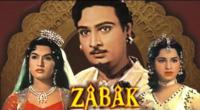
Cheppu Full HD Movie Download
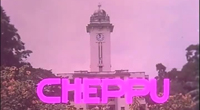
Roja Full HD Movie Download
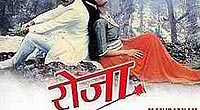
Apne Rang Hazar Full HD Movie Download
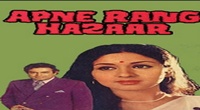
Film Hi Film Full HD Movie Download
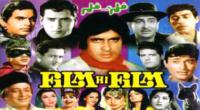
Sindoor (1987) Full HD Movie Download
.jpg)
Thokar (1974) Full HD Movie Download
.jpg)
Dholi Taro Dhol Vaage Full HD Movie Download
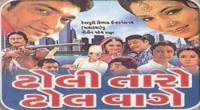
Penmani Aval Kanmani Full HD Movie Download
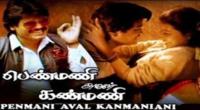
Angarakshakudu Full HD Movie Download
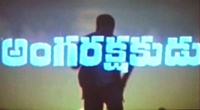
Spirit Bear - The Simon Jackson Story Full HD Movie Download

Aakhari Khat Full HD Movie Download
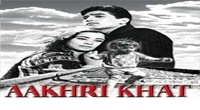
Aur Ek Jallad Full HD Movie Download
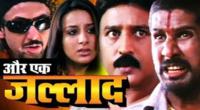
Houn Jau De Full HD Movie Download
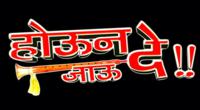
Day Of The Warriors Full HD Movie Download
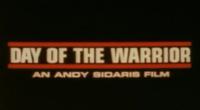
Priyamaina Srivaru Full HD Movie Download
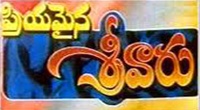
Sarangadhara Full HD Movie Download
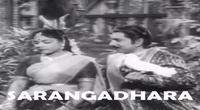
Guna Sundari Katha Full HD Movie Download
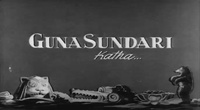
City War Full HD Movie Download
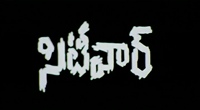
Maavoori Maisamma Full HD Movie Download
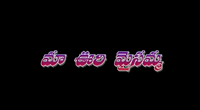
Download latest Movie from bollywood
- 1> baaghi 3
- 2> THE SKY IS PINK MOVIE FULL STORY AND REVIEW
- 3> Luka Chuppi
- 4> TO ALL THE BOYS I’VE LOVED BEFORE
- 5> Kabir Singh
- 6> Street Dancer 3D
- 7> Simmba
- 8> Gone Girl
- 9> The Girl Who Lived
- 10> Ludo
- 11> DILWALE DULHANIA LE JAYENGE
- 12> GUILTY
- 13> The Godfather
- 14> Adventures of Rusty
- 15> Sooryavanshi
- 16> Satyameva Jayate 2
- 17> Thappad
- 18> Bhool Bhulaiyaa 2
- 19> KGFChapter 2
- 20> Mardaani 2
- 21> Pinjar
- 22> Shivaji maharaj
- 23> Ek Villian 2
- 24> Hungama 2
- 25> Divergent
- 26> Mumbai Saga
- 27> The Internship
- 28> HIT (telugu)
- 29> Panga
- 30> The perfect date
- 31> 16 December
- 32> Gopala Gopala (Telugu)
- 33> Brahmastra
- 34> Gangubai Kathiawadi
- 35> Manmadhudu
- 36> Nenu local
- 37> Mahanati
- 38> Shatamanam bavathi
- 39> Lagaan
- 40> After
- 41> MOM
- 42> Shamshera
- 43> Raguvaran BTech
- 44> Khakee
- 45> The villain
- 46> OM
- 47> Mr. perfect
- 48> Bueatifull mind
- 49> Hichki
- 50> Gabbar Singh
- 51> Jogi
- 52> Before Sunrise
- 53> Before Sunset
- 54> Before Midnight
- 55> The Big Bull
- 56> Top Gun: Maverick
- 57> The Purge
- 58> The Sky is Pink
- 59> Laxmmi Bomb
- 60> Sadak 2
- 61> Sufna
- 62> Prithviraj
- 63> PK
- 64> Coolie No 1(2020)
- 65> Black Widow
- 66> Dear Zindagi
- 67> Dil Bechara
- 68> PHIR HERA PHERI
- 69> WAR
- 70> Dostana
- 71> RRR: Roudram Ranam Rudhiram
- 72> Maidan
- 73> Dabbang 3
- 74> Chhalaang
- 75> life as we know it
- 76> SherShaah
- 77> Sandeep Aur Pinky Faraar
- 78> Event Horizon
- 79> 83
- 80> Radhe: Your Most Wanted Bhai
- 81> Gunjan Saxena: The Kargil Girl
- 82> Mr India
- 83> Vivah
- 84> Anokha Bandhan
- 85> Ghost
- 86> Bhoot: Part One - The Haunted Ship
- 87> Haseen Dilruba
- 88> Laal Singh Chaddha
- 89> Qismat
- 90> Rajput
- 91> Drive
- 92> Dil Chahta Hai
- 93> Dil Ki Baazi
- 94> Dil Ka Rishta
- 95> Teesri Manzil
- 96> Dil
- 97> Love Aaj Kal
- 98> Khaali Peeli
- 99> Bunty Aur Babli 2
- 100> Atrangi Re
- 101> Gulabo Sitabo
- 102> Jodi
- 103> Suraj Pe Mangal Bhari
- 104> Deewana
- 105> Attack
- 106> Sardar Udham Singh
- 107> Toofan
- 108> THE LOVEBIRDS
- 109> Jersey
- 110> Ginny Weds Sunny
- 111> Thalaivi
- 112> Shiddat
- 113> Angels vs Zombies
- 114> Koi Mil Gya
- 115> Thank God
- 116> Bhuj: The Pride of India
- 117> Hum Aapke Hain Kaun
- 118> The Platform
- 119> Bird Box
- 120> Roohi Afzana
- 121> Torbaaz
- 122> Nikamma
- 123> World War Z
- 124> Extraction
- 125> Train to Busan
- 126> Life of Pi
- 127> SHAADI MEIN JROOR AANA
- 128> Himmat Aur Mehnat
- 129> To All The Boys: P.S. I Still Love You
- 130> Mimi
- 131> Good Newwz
- 132> Shubh Mangal Zyada Saavdhan
- 133> Raabta
- 134> Harry Potter and the Philosopher's Stone
- 135> Harry Potter and the Chamber of Secrets
- 136> Chhapaak
- 137> War of the Worlds
- 138> Harry Potter and the Prisoner of Azkaban
- 139> Harry Potter and the Goblet of Fire
- 140> MURDER MYSTERY
- 141> Shakuntala Devi
- 142> Bachchan Pandey
- 143> Jayeshbhai Jordar
- 144> Sheer Qorma
- 145> Saina
- 146> 'O' Pushpa I hate tears
- 147> Kedarnath
- 148> MS Dhoni The Untold Story
- 149> Chhichhore
- 150> Badhaai Ho
- 151> Unstoppable
- 152> Oz the Great And Powerful
- 153> The Girl on the Train
- 154> Haathi Mere Saathi 2020
- 155> The Conjuring: The Devil Made Me Do It
- 156> Gandhi Se Pehle Gandhi
- 157> The Song of Scorpions
- 158> Srimanthudu
- 159> Hello Guru Prema Kosame
- 160> Beauty and The Beast
- 161> Black Panther
- 162> Charlie and the Chocolate Factory
- 163> Bole Chudiyan
- 164> Fidaa
- 165> Duvvada Jagannadham
- 166> Bruce Lee: The Fighter
- 167> Hyper
- 168> Yaara
- 169> Red (2020)
- 170> Shivam
- 171> That Is Mahalakshmi
- 172> Nishabdham
- 173> Aashram 2020 web series
- 174> Laxmii
- 175> Mismatched
- 176> STUDENT OF THE YEAR 2
- 177> NAIL POLISH
- 178> Ramprasad Ki Tehrvi
- 179> KAAGAZ
- 180> 12 o Clock
- 181> The Power
- 182> bolo hau
- 183> Tribhanga
- 184> JAMUN
- 185> Madam Chief Minister
- 186> Maasaab
- 187> Aadhaar
- 188> Tanhaji
- 189> Bhaagi 3
- 190> Bhootnath
- 191> MALANG
- 192> Jai Mummy Di
- 193> Haathi Mere Saathi 2021
- 194> Shakeela
- 195> Unpaused
- 196> Annayya
- 197> Vamsoddharakudu
- 198> Mrugaraju
- 199> Narasimha Naidu
- 200> Sankranti
- 201> Manasu Maata Vinadhu
- 202> Anjaane
- 203> Apaharan
- 204> Bachke Rehna Re Baba
- 205> Bewafaa
- 206> Roohi
- 207> Radhe
- 208> Zindagi Khoobsoorat Hai
- 209> Yeh Mohabbat Hai
- 210> Yeh Kya Ho Raha Hai?
- 211> The Tomorrow War
- 212> DehradunDiary
- 213> Meri Shaadi Karaoo
- 214> Matruu Ki Bijlee Ka Mandola
- 215> No One Killed Jesica
- 216> Aag Ka Goola
- 217> Eight Million Dollars
- 218> Three Hundred
- 219> Cats and Dog
- 220> Decoy
- 221> Gold Rush
- 222> You Have Got Mail
- 223> Final Destination three
- 224> Tofan
- 225> Jungle
Request for Download movie The Trial 1962 Film
- Bollywood movies
- Latest Bollywood movies
- Download all bengali movies
- Download all bhojpuri movies
- Download all english movies
- Download all gujarati movies
- Download all hindi movies
- Download all kannada movies
- Download all malayalam movies
- Download all marathi movies
- Download all oriya movies
- Download all punjabi movies
- Download all tamil movies
- Download all telugu movies
- Bollywood action movies
- Bollywood adventure movies
- Bollywood animation movies
- Bollywood classical movies
- Bollywood comedy movies
- Bollywood crime movies
- Bollywood devotional movies
- Bollywood documentary movies
- Bollywood drama movies
- Bollywood family movies
- Bollywood fantasy movies
- Bollywood historical movies
- Bollywood history movies
- Bollywood horror movies
- Bollywood musical movies
- Bollywood mystery movies
- Bollywood mythological movies
- Bollywood patriotic movies
- Bollywood romance movies
- Bollywood romantic movies
- Bollywood sci-fi movies
- Bollywood social movies
- Bollywood spiritual movies
- Bollywood sports movies
- Bollywood suspense movies
- Bollywood thriller movies
- Bollywood war movies
- Hot actress list
- Hot gujarati actress list
- Hot tamil actress list
- Hot bhojpuri actress list
- Hot assam actress list
- Hot bihari actress list
- Hot jammu and kashmir actress list
- Hot gujarati actress list
- Hot haryana actress list
- Hot konkani actress list
- Hot marathi actress list
- Hot odia actress list
- Hot punjabi actress list
- Hot rajasthani actress list
- Hot kannada actress list
- Hot malayalam actress list
- Hot telugu actress list
- Hot tulu actress list
- Hot Actress list from Indian city
- Hot actress list from ahmedabad
- Hot actress list from alappuzha
- Hot actress list from bangalore
- Hot actress list from bangalore
- Hot actress list from bhopal
- Hot actress list from chandigarh
- Hot actress list from chennai
- Hot actress list from guwahati
- Hot actress list from hyderabad, india
- Hot actress list from indore
- Hot actress list from jaipur
- Hot actress list from kannur
- Hot actress list from kochi
- Hot actress list from kolkata
- Hot actress list from kollam
- Hot actress list from kottayam
- Hot actress list from kozhikode
- Hot actress list from lucknow
- Hot actress list from madurai
- Hot actress list from mangalore
- Hot actress list from mumbai
- Hot actress list from mysore
- Hot actress list from new delhi
- Hot actress list from patna
- Hot actress list from pune
- Hot actress list from thiruvananthapuram
- Hot actress list from thrissur
- Hot actress list from tiruchirappalli
- Hot actress list from vijayawada
- Hot actress list from visakhapatnam
- All Bollywood Movies
- Bollywood Celeb
- >Art Director
- >Audiography
- >Background Music
- >Banner
- >Choreographer
- >Cinematographer
- >Costume Designer
- >Dialogue Writer
- >Director
- >Distributor
- >Editor
- >Executive Producer
- >Hair Stylist
- >Lyricist
- >Music Director
- >Photographer
- >Playback Singers
- >Presenter
- >Producer
- >Production Company
- >Production Designer
- >Screenplay
- >Singer
- >Sound
- >Actor
- >Story Writer
- >Studio
- >Video Director
- >Miscellaneous
- >Publicity (pro)
- >Web Creator
- >Production Labs
- >Publicity Design
- >Publicity Stills
- >Writer
- >Miscellaneous Artists
- >Visual Effects
- >Reporter
- >Music Company
- >Shooting Studios
- >Picturised On
- >Line Producer
- >Co Producer
- >Asst Director
- >Casting Director
- >Cinematography
- >Choreography
- >Dialouge
- >Editing
- >Lyrics
- >Music
- >Story
- >Playback Singer Female
- >Playback Singer Male
- >Actor In A Comic Role (male/female)
- >Child Artiste
- >Ensemble Cast
- >Actor Popular Choice (male)
- >Actor Popular Choice (female)
- >Sa Re Ga Ma Pa Song Of The Year
- >Actor In Supporting Role
- >Actress In Supporting Role
- >Actor In Leading Role
- >Art Direction
- >Actress In Leading Role
- >Sound Recording
- >Costume Design
- >Special Effects
- >Action
- >Actor In A Negative Role
- >Lifetime Achievement Award
- >Cinematic Exellence (director)
- >Cinematic Exellence (male)
- >Cinematic Exellence (female)
- >International Male Icon
- >International Female Icon
- >Actor In A Supporting Role (male)
- >Actor In A Supporting Role (female)
- >Actor In A Comic Role
- >Playback Singer (male)
- >Playback Singer (female)
- >Most Promising Debut (female)
- >Most Promising Debut (male)
- >Most Promising Director
- >Sound Design
- >Lifetime Jodi
- >Marketed Film
- >Jury Award For Best Actor
- >Jury Award For Best Actress
- >Jury Award For Best Film
- >Jury Award For Best Director
- >Playback Singer(male)
- >Lifetime Acheivement Award (male)
- >Excellence Award
- >Jodi Award
- >Performer Of The Year
- >Presented By
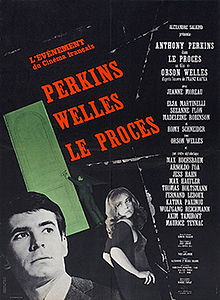 Story of movie The Trial 1962 Film :
Story of movie The Trial 1962 Film : 